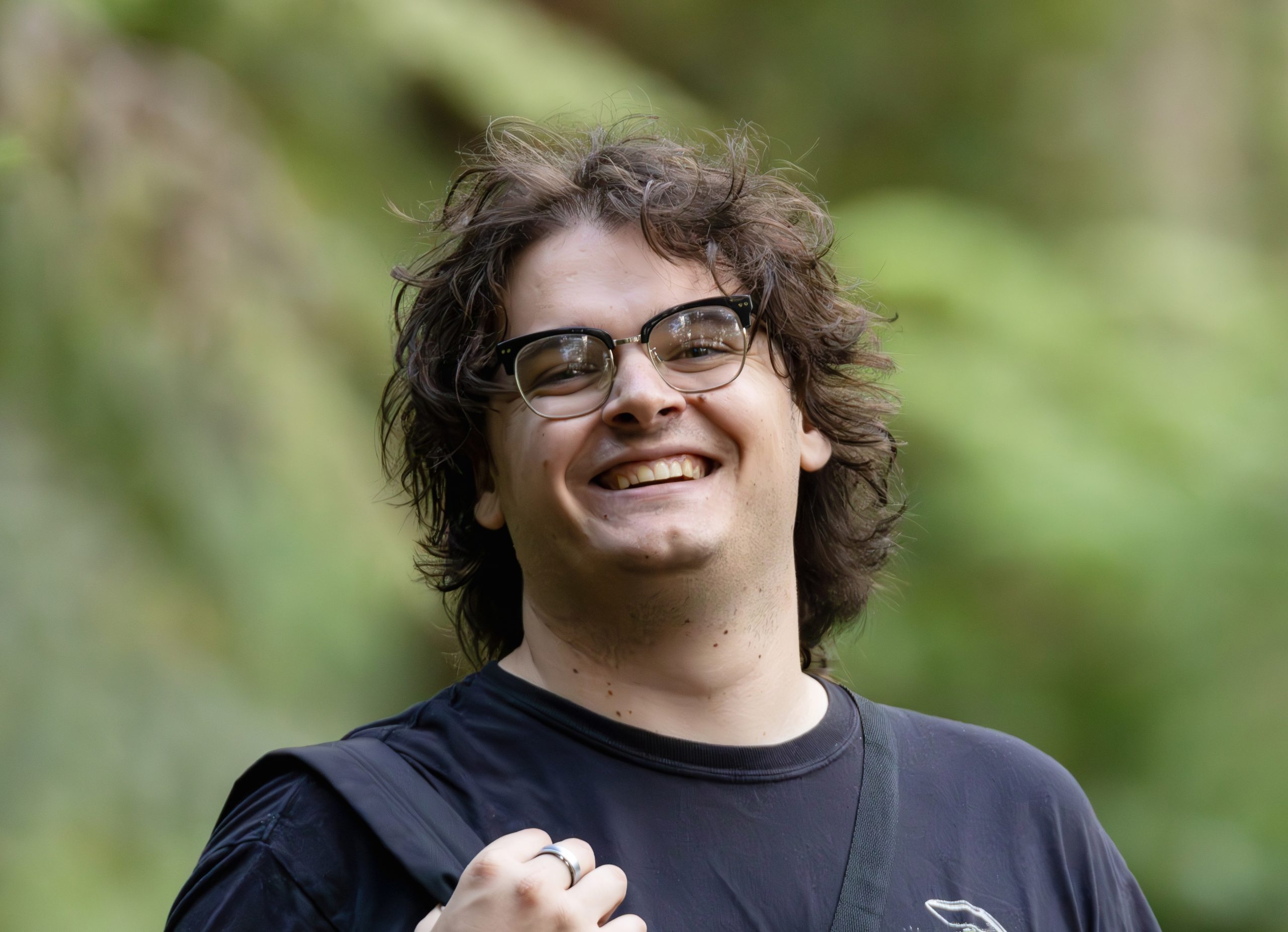Samuel Anderson never imagined his first professional job would involve sitting alone at home, not meeting his colleagues in-person for a year.
The Melbourne man, who is now 25, had a highly unusual entry into the workforce at the start of the COVID-19 pandemic in early 2020.
After a fair chunk of his early career spent at a makeshift desk at home – and as many Aussies resist the push to return to the workplace – Anderson told 9News.com.au he now much prefers the office over remote work.
READ MORE: Alisha and Emilia both gave birth under some of the world’s toughest restrictions

Anderson was offered a job at Australian Spatial Analytics, a social enterprise and non-profit which focuses on helping neurodivergent adults build their careers, five years ago.
“I started a new job in April 2020, about a month [into the pandemic]… and it was different to any other kind of job I’d done before,” Anderson explained.
“I went full time in 2021, it was casual up until that point. I hadn’t even gone into an office at all.”
Anderson joined millions of other Australians having meetings on Zoom and using a dining table as a desk during the unprecedented pandemic
He didn’t bond with his co-workers at the water cooler or enjoy an after work tipple like many other generations first working full-time.
“I hadn’t got a chair yet, I was sitting on my freezer,” he laughed.
READ MORE: Coalition government would require public servants in the office five days a week
“I was lonely at times, but we’d just sit on a call all day. If you wanted to talk, you’d talk.
“But it certainly was like living online.”
According to Dr Melissa Wheeler, a senior lecturer in Business Administration at RMIT, fully remote work took away a lot of opportunities for many young people.
“People who were new to the workplace were really missing out on those mentorship opportunities, which often happen really informally,” Dr Wheeler said.
“It’s very hard to do those things in online or remote settings – I don’t think it’s impossible.
“I just think we haven’t been trained, or we can’t recognise the opportunities when they pop up in remote settings.”
He was not getting the physical experiences of being in the workplace, but Anderson said he felt lucky to have a job in the first place.
His career was able to accelerate during this period despite the isolation.
“I wasn’t expecting it and it came out of nowhere,” he said.
“Rather than being resentful or upset that it wasn’t like anyone else’s [start to their career], it wasn’t something I was expecting in the first place.
“For that reason, I was thankful.”
Now, five years into his career, Anderson is going against the grain compared to millions of his peers.
If he can avoid it, he will choose working in an office over remote work.
“ I felt like I was working way too long because, what else am I going to do?” Anderson said.
“Like, I’ll just be on the computer anyway. It wasn’t good for work life balance.
“You need that separation from workspace and leisure.’
Wheeler said despite its disadvantages, the rise of remote work has given plenty of Gen Z workers the taste of a healthy work-life balance.
She said younger professionals were now rejecting the traditional 9-5 workday in droves following the pandemic and are demanding flexibility.
“They express work in a different way, in a more creative way, in a more burst of productivity, kind of way that we might not be used to,” Dr Wheeler said.
READ MORE: Mark spends hours every week trying to stop scammers targeting grieving families
“I think we’re all saying, wait, hold on a second. In times of crisis, you asked us to pivot so quickly and to master it, and we did it.
“And then you said, wait, now that you’ve done it, we actually want everyone to return back.”
Wheeler thinks a hybrid model is here to stay for office workers.
It’s a long-term pandemic impact that won’t fade away and will likely benefit future generations of employees.
But as for the notorious four-day week? There’s a bit of work to be done before that’s universally achievable.
“There’s a famous economist, John Maynard Keynes, who said in 100 years people would be working three days a week,” Wheeler added.
“But our increasing consumerism has meant that that will never be possible, because when things are so easy to get… there’s never a ‘good enough.’
“If we were to, as a culture, as a society, as a world, decide to be more sustainable, to stop producing and wanting as much, then that would be much more realistic.”
DOWNLOAD THE 9NEWS APP: Stay across all the latest in breaking news, sport, politics and the weather via our news app and get notifications sent straight to your smartphone. Available on the Apple App Store and Google Play.